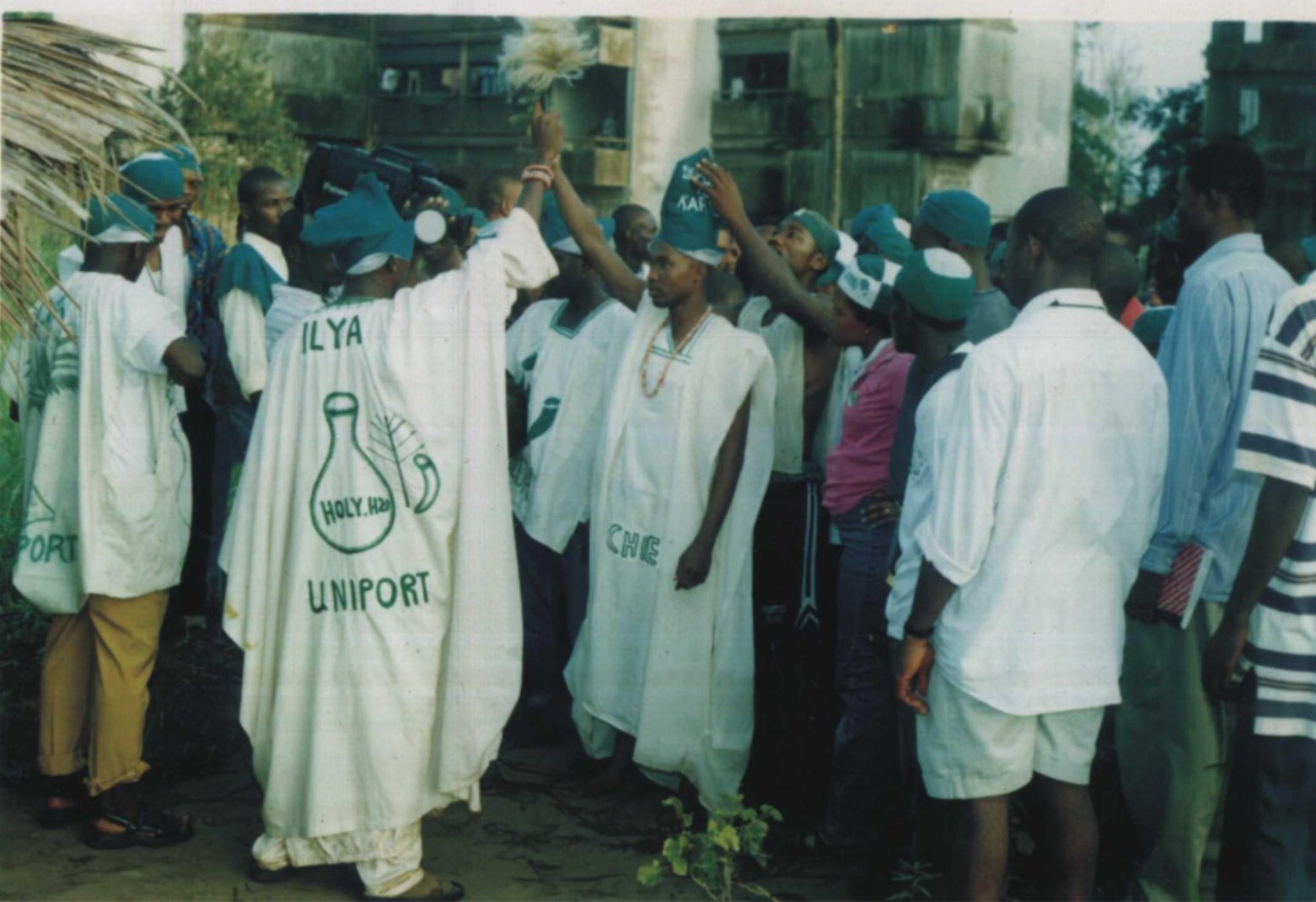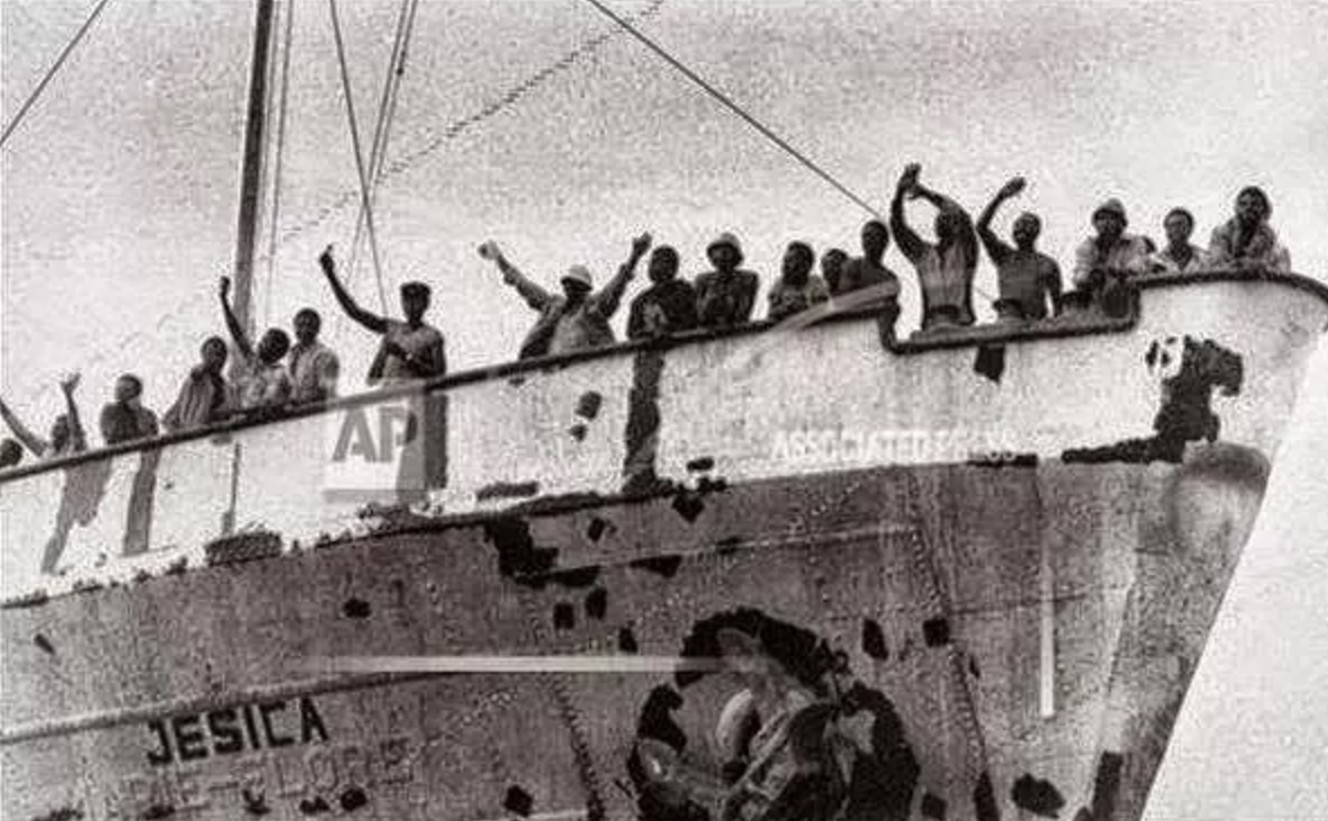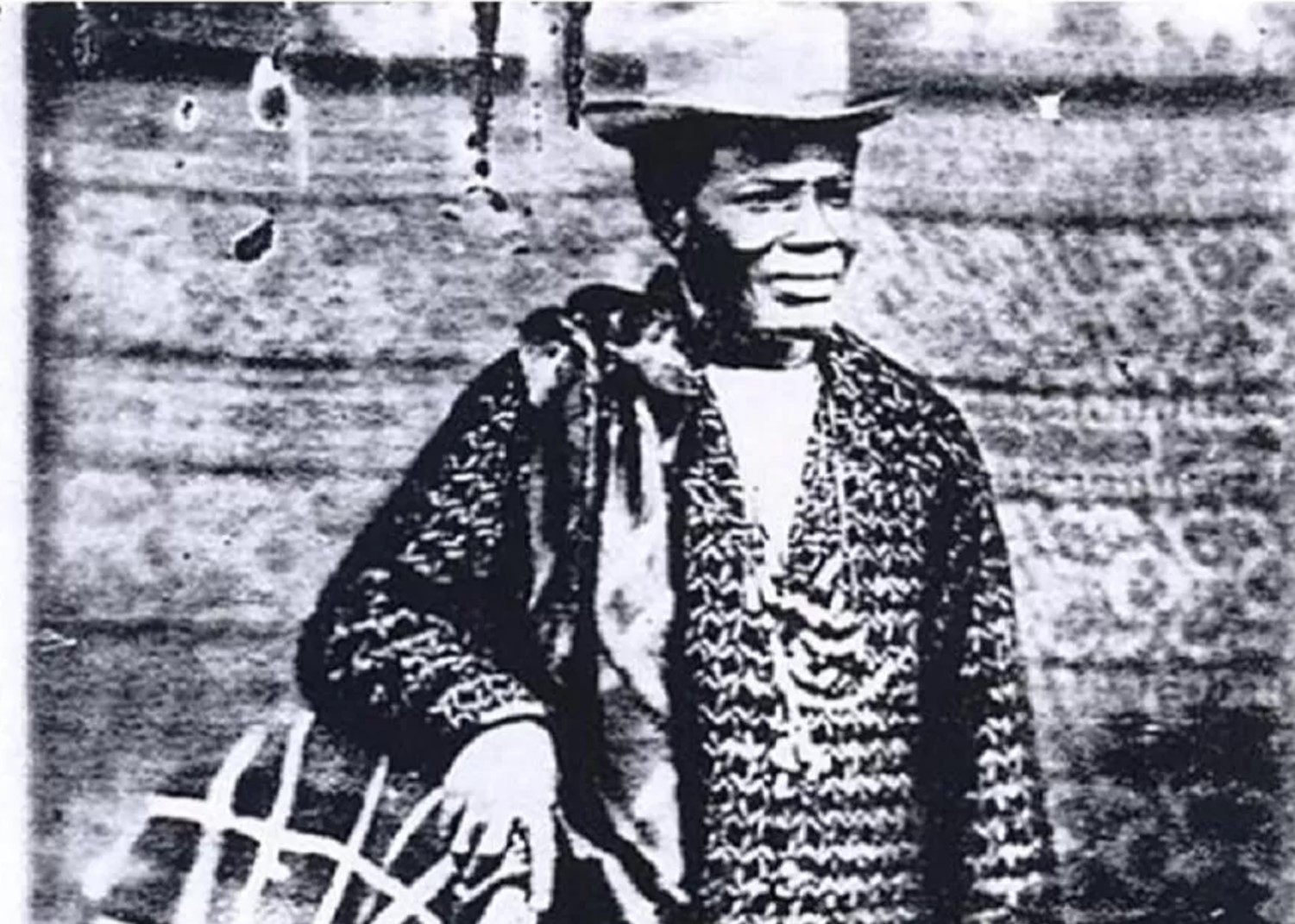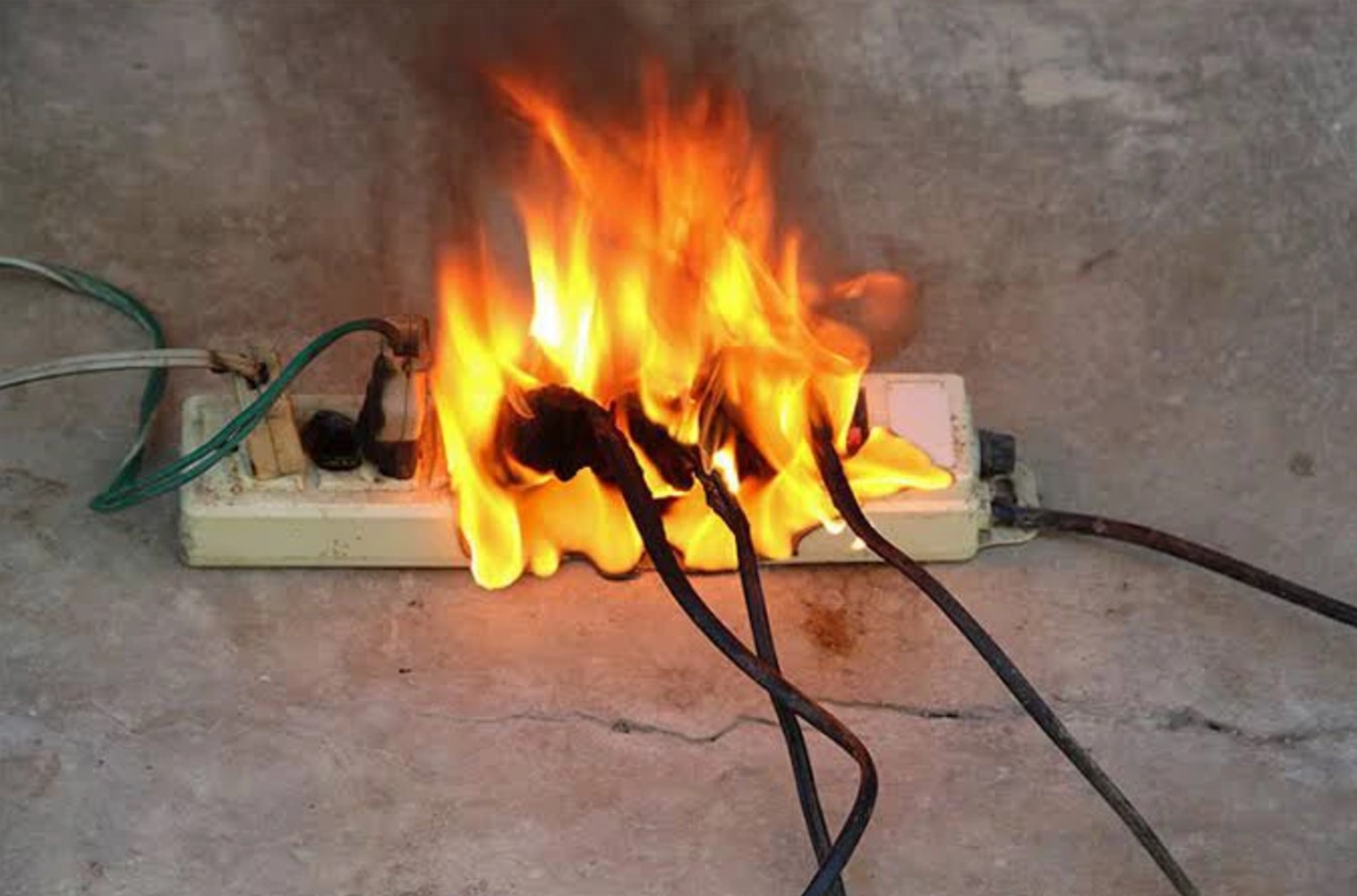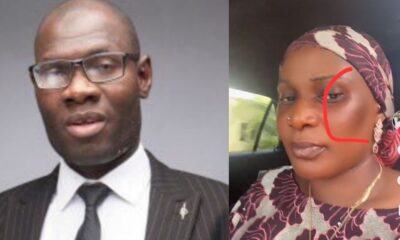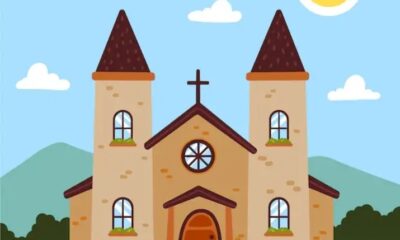“By dia fingas and dia kariability, we shall know them”
Kegites got their name from the word ‘keg’ which is a local container for keeping palm-wine. There is an indescribable magical feeling that accompanies the merrymaking of members of the Kegites Club.
Their activities are so electrifying that anyone who does not subscribe to their ways, maybe due to religious or ideological alignment, may find themselves creating space for the glamour that coils around their high-spirited activities…Click Here To Continue Reading>> …Click Here To Continue Reading>>
Known for cultural, high-spirited dancing, coupled with songs borne out an amalgam of lewd and didactic lyrics. Kegites are mostly found in Nigerian tertiary institutions. The Kegites Club is dubbed to be the most popular socio-cultural club in Nigeria.
Brief History of the Kegites Club
Each club is called Ilya and there are about a hundred Ilyasis in Nigeria. The Kegites club originated from the University of Ife (now Obafemi Awolowo University, Ile-Ife). It was formally formed in 1962. Then the University of Ibadan took the second formation in 1972.
Chief Olusegun Adesina was the first Chief to be coronated followed by Emmanuel Abiodun, Bisi Olatunji and others who served as executives alongside the chief. They are known as world chief.
The motto of the club was formerly ‘the basis of African unity’ and ‘world peace is palm-wine’. It was later changed to ‘unity in diversity’. Members of the club were formerly known as palm-wine drinkers until 1986 when Chief Anthony Uzodinma Ogidi changed it to Kegites due to the negative comments and perception the former name garnered.

Over the years, many students in other institutions have found the activities of the club fascinating and thus obtained autonomy from the University of Ife (the world headquarters of the club). Among such institutions are Federal College of Agriculture, Akure (ILYA du TRACTOR), University of Ibadan (ILYA du UI) which obtained its keg of office in 1972 and several others.
Members of the club are found in learning institutions in Brazil, Canada, Ghana, India, Liberia, London. The objective of the club is to promote Africanism in their songs, promote peace, resuscitate cultural norms, and discourage social vices. Notable members of the club are late Obafemi Awolowo, Former President Olusegun Obasanjo, Professor Wole Soyinka, Dr Orji Kalu, Governor Akeredolu (SAN).
The Jarasis Language
The aesthetics of the language of Kegites can not be overlooked. When singing and conversing, they speak an esoteric language which is a mixture of English and the Yoruba language with jargons only understood by members of the club. The language is called Jarasis. A club is called Ilya; the University of Ife being the founding club is called Ilya du world that is, ‘World Headquarters’.
A transport minister is called Transporta; Cricket is the one in charge of singing; Drumito is the drummer; Songito is a singer; Parrot is the public relations officer; Tapper rotates the holy water (palm wine).
Titles/Ranks of the Kegites Club of Nigeria
CHIEF: This is the president of the club in an ilya. He is in charge of accepting new member in the club that is called liberation and has the power to do many things.
ELDER: He is the second in command, that is the vice president to the chief.
FEDA: He is the secretary of an ilya.
PARROT: He is the director of information in an ilya, he passes information to the comrades.
PHILOSOPHER: He is the comrad who knows everything about the club, he teaches and tutorise both animales and comrados in the zoo.
H.O.D: Head of drums, he is in charge of the drum in an ilya he also teaches the other comrades how to beat the drums.
SONGITO: He is the vocalist of the club, he lead in songitizing in jara.
MIGRATOR: He organizes ketekete (vehicles) for external gyrations.
TAPPER: The person that rotates holy water .
MARSHAL: The provost in an ilya , he make sure that the comrads behaves well in an ilya.
LUPOUR: He is the person that shares the holy water for the comrades.
ZOO COMMANDANT: He is the person in charge of the co-ordination of the zoo class.
AJUCTANT: The person in charge of the chief’s items. READ FULL STORY HERE>>>CLICK HERE TO CONTINUE READING>>>
CURATOR: A person in charge of the shrine, all the chieftaincy parapitenal is usually put in the custody of the curator.
SPECIAL DUTY (Spedu) : The person also carries out some duty in an ilya.
ELDERSIS COUNCIL: Selection of chief and elders in an ilya who take some important decisions in order for the club to move forward.
CHIEFSIS COUNCIL: This council is the highest body in the club comprising of ab, xy, xyz, archival and metusela chiefesis.
SPIDER: He designs all the comradic materials example includes capito, regalia, neckito.

Notable Kegites Slangs and their Meanings
Karid: to be recognized as a member qualified to make contributions.
Regalia: the official attire, a white jumper or Kampala dress with gourds embroidered on it.
Holy water: palm wine.
Comrad: student members.
Ilya du Queen: East London University
Ilya du Punjab: Punjab University, India.
Emusifere: Hemisphere (to describe the location of a club)
Transformjara – Initiated
Galagala – World
Opeke – Female Kegite
Emblem – Calabash
Iyla du Akete – Lagos State University
Iyla du Lagoon – UniLag
Zoo – A place where new members are groomed.
Kegistic Langwaja – This is the approved language of the kegites club.
Baby Ilya – A newly commissioned branch of kegites club that has no keg office or a chief, but attached to an ilya and overseen by a cordee (coronator).
Kegites Club Anthem
Imbibe Imbibe in majesty
Holy water is good for me,
Holy water from kegite stream
That makes us happy every day.
It is believed that the cap worn by them is a cap of wisdom. And so members are wise people who have chosen to revel in the beauty of culture and palm-wine drinking. ‘May you walk and never stumble’ is a common prayer for members of the Kegites Club of Nigeria.

